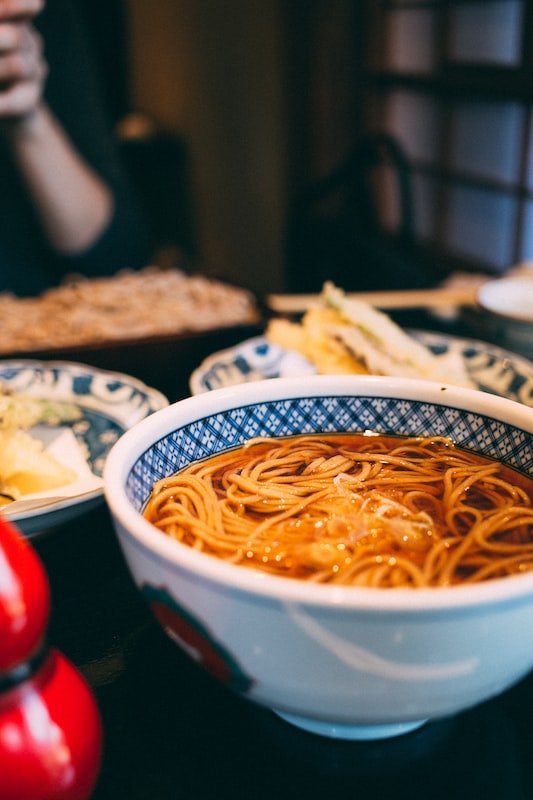Ramen is the perfect way to start your journey. Perhaps you’ve tried it once or twice in a ramen restaurant, or your friends rave about it. You decided to purchase some noodles for your first meal. Are ramen noodles bad?
Maybe you’re not a great cook and bought some instant ramen noodles. Some of the noodles remained in the pantry for a while. Now you are wondering how long they will last and if they can still be used.
You may have decided to up your cooking skills and purchased fresh wheat noodles in order to make a ramen or chicken recipe for the weekend. You aren’t sure if fresh noodles should be kept refrigerated. You can also freeze leftover noodles due to their short shelf lives.
You can read on regardless if you want to learn more about ramen noodles. This article will discuss storage, shelf-life, and going bad for ramen noodles. No matter what variety you choose, we have you covered instant, dried and fresh noodles.
How to store Ramen Noodles
There are three types of ramen noodles. The dried instant noodles are usually sold in blocks. There are also wheat noodles that look like thick spaghetti. The freshest ramen noodles are those that are most commonly found in ramen shops.
Some purists believe that dried instant noodles are not ramen. However, the label may have the word “ramen”. For the sake of this article let’s assume that dried instant noodles can also be called ramen noodles. Let’s now talk about storage.
Instant noodles that have been dried don’t need to be stored in extreme conditions. Store the packets in a dry, dark place at room temperature. You can use the entire block of dried noodles in most cases, but you can also separate them if necessary. You can also store the remainder in a bag or container that is resealable.
Storage guidelines for wheat noodles are the same. Keep your wheat noodles in a dry, cool place away from heat sources and sunlight. A cabinet or pantry in your kitchen is a good option.
After opening the package , seal it as tightly as possible or transfer to an airtight container (or a freezer bag). This is how we store dry pasta.
There are also fresh noodles. When you choose this variety, it is important to keep the noodles in the refrigerator as soon as they are brought home . You can check to see if the noodles are fresh if they were in the refrigerated area.
If you don’t need all of them, seal the rest in a refrigerator . These freezer bags are great. Freezing fresh noodles is a smart idea, as they don’t keep for very long.
It turns out that fresh noodles freeze well. If they have been opened, freeze them in their original packaging. If the package has been opened, wrap it in aluminum foil or place it in a freezer bag. The noodles can be thawed in the refrigerator overnight.
What is the average life expectancy of Ramen noodles?
Let’s talk again about instant dry noodles. They can usually last for a few years. They will have a shelf life of a few years, but because they are preservatives, these noodles can easily last months beyond that.
You will find a date on all pasta-like wheat noodles. This product is not as processed as instant noodles so their shelf life is typically around a year. While the noodles may retain their quality for a few more months , they will eventually lose their flavor and be less durable.
Fresh noodles are the most shelf-stable. They can usually be kept in the refrigerator for approximately 2 to 3 weeks. You can freeze them if you want to keep them longer.
If you’re curious, instant and wheat noodles can be frozen, but their shelf lives are quite long so it’s not a good idea.
How to tell if Ramen Noodles are Bad
It makes sense to ensure that the noodles are fresh before making the broth and miso paste, if you use it, and any other food in the bowl.
Instant dried noodles should be fine as long as the moisture doesn’t reach the package.
Take a look at the block from every side of the bag. Next, crush the noodles using your fingers. Give the noodles a final sniff and if everything is fine, you can eat them.
The modus operandi for wheat noodles is the same. You must ensure that the food is not damp, has no bugs, and doesn’t smell bad.
Instant noodles, like their wheat cousins, don’t often spoil in such a way that they are unsafe to eat. The worst thing that could happen to noodles is for them to taste a little stale after being cooked.
However, fresh ramen noodles can grow mold if they are not stored in the right conditions or for too long.
First, look out for dark spots or signs of mold. Next, give the noodles a good sniff to ensure it smells right. You can prepare the noodles as long as everything is in order.



